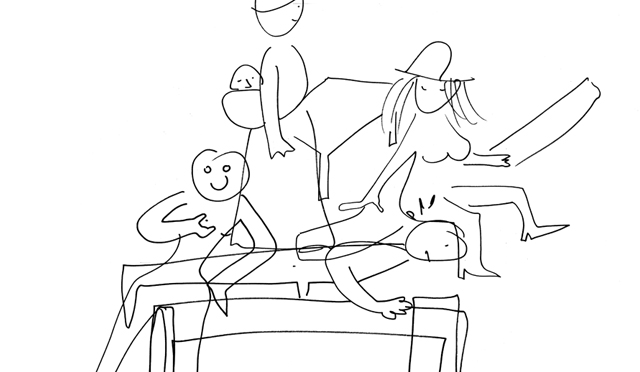Search
To search for an exact match, type the word or phrase you want in quotation marks.
A*DESK has been offering since 2002 contents about criticism and contemporary art. A*DESK has become consolidated thanks to all those who have believed in the project, all those who have followed us, debating, participating and collaborating. Many people have collaborated with A*DESK, and continue to do so. Their efforts, knowledge and belief in the project are what make it grow internationally. At A*DESK we have also generated work for over one hundred professionals in culture, from small collaborations with reviews and classes, to more prolonged and intense collaborations.
At A*DESK we believe in the need for free and universal access to culture and knowledge. We want to carry on being independent, remaining open to more ideas and opinions. If you believe in A*DESK, we need your backing to be able to continue. You can now participate in the project by supporting it. You can choose how much you want to contribute to the project.
You can decide how much you want to bring to the project.

It is no coincidence that we should have devoted the month of March to discuss feminisms. 8 March is the International Day of Women Workers, commemorating women’s struggle for participation in society and for their complete development as individuals with equal opportunities as men. The date was first celebrated in 1911, but thanks to the strength that feminist movements have gained over recent years, in 2018 the celebration was a landmark in countries like Spain. A feminist strike, organised and supported by trade unions and feminist and LGBTI associations around the country, managed to gather millions of people on the streets, defending their rights.
At A*Desk we joined the strike and decided to dedicate space to reflections on the position of women in society and in the art world. Irina Mutt described the ‘impostor syndrome’ apropos I Love Dick and the few (and increasingly less) spaces of power occupied by women in this sector. Is it true that we lack security in ourselves? Could it be true that only the women who behave like macho men go places?
Xavi Acarín reflected on the cultural policies devised by our macho rulers, cultural policies based on the large scale, the visible and pompous rooted in discourses that denigrate women, minorities and dominated classes. He defended different feminist trends to fight inequalities and pointed to the artist as a dissident agent capable of bringing about changes. How?
Sonia Fernández Pan and Alexandra Laudo gave us a few ideas, recalling initiatives launched by the public powers in Sweden – a country particularly sensitive to gender equality – and defending a type of feminist writing based on the affections, that favours inclusive rather than legitimising references.
This month, the atmosphere on Spanish social media was heated — gentlemen were outraged by feminism, women were protesting and everything suspect of social progress was vehemently discussed. What would happen if we made them read Chimamanda Ngozi Adichie? Would they consider it too basic, or would they want to burn us at the stake? We still have some way to go.

A*DESK is a critical platform focused on publishing, training, experimentation, communication and dissemination in relation to contemporary culture and art, which is defined by transversality. The starting point is contemporary art, because that is where we come from and this awareness allows us to go much further, to incorporate other disciplines and forms of thought in order debate issues that are relevant and urgent for understanding our present.
"A desk is a dangerous place from which to watch the world" (John Le Carré)